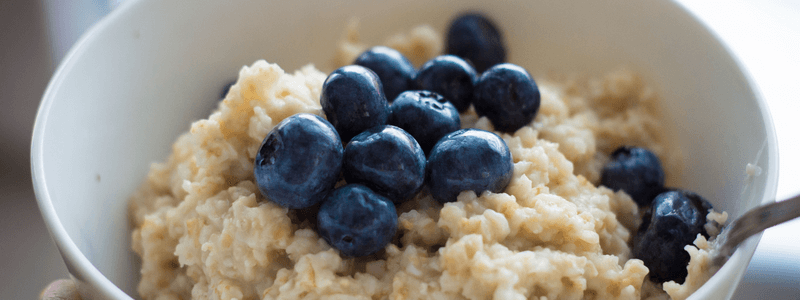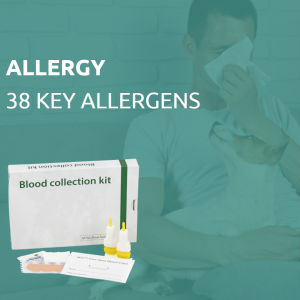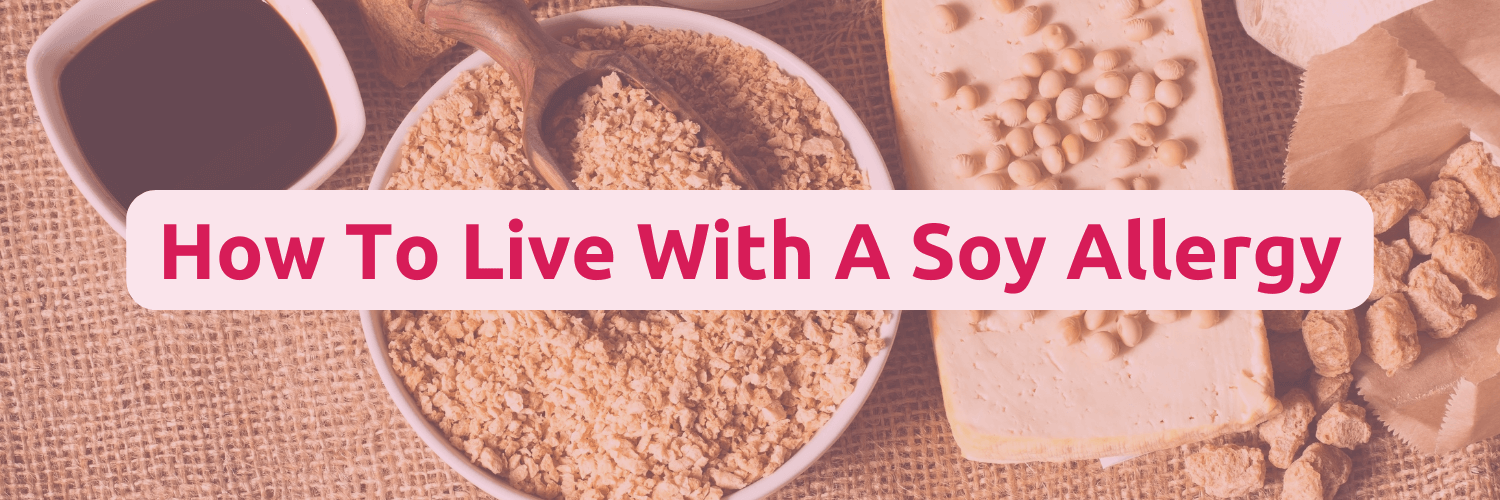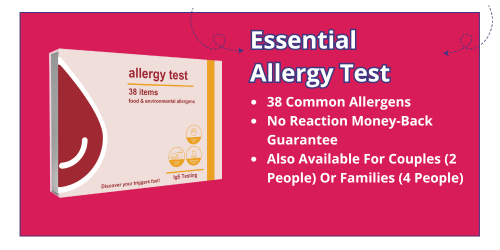
Oats are cereal grains rich in fibre, antioxidants, and various nutrients. Oats belong to the genus Avena. Oats are famously consumed in Europe, but it may not be commonly known that they are also a source of food allergies. Some people are extra sensitive that mere ingestion or inhalation of oat flour results in oat allergy symptoms. From a clinical perspective, oat allergies cause Oral Allergy Syndrome (OAS), skin reactions, gastrointestinal signs, anaphylaxis, and respiratory symptoms.
Even though oats are rich in nutrients such as omega-3 fatty acids, it is best to avoid the cereal if you suffer from an oat allergy. Anyone can develop an allergy to oats at any stage, but it’s rare in infants. Keep reading to find out more about oat allergy, including symptoms and how to tackle them.
Causes of oat allergy
If you experience oat allergy symptoms upon consuming a bowl of porridge, you might be allergic to proteins in this cereal. A protein called avenin, present in oats, often triggers an immune system response in those allergic to oats. Despite this, it is possible to think you have oat allergies when in fact, you don’t. Such circumstances occur when there is cross-contamination between different grains. For example, oats don’t contain gluten but are grown and processed in facilities that handle other grains like rye and wheat, which contains gluten. Hence, if you have a gluten sensitivity or allergy, you may experience symptoms when eating oats because of cross-contamination.
When oats are processed in the same facility as these either grains, it contains trace amounts of gluten that can cause contamination, which can be a problem for those with gluten sensitivity. Some people also experience symptoms like gastric discomfort after consuming oats because they’re sensitive to foods that are high in fibre. So, there are moments people misdiagnose other conditions for oat allergy. Also, if you’re allergic to oats, you may experience skin reactions like oat allergy eczema because some skin care products contain this cereal.
Oat allergy symptoms

A male holding is stomatch.
Oat allergy symptoms range from mild to severe and vary from one person to the next. These symptoms can affect the airways, gut and skin. Often, symptoms of oat allergy appear within a few minutes up to a few hours after consumption. Moderate oat allergy symptoms include:
- Nausea
- Vomiting
- Blotchy, itchy, and irritated skin
- Difficulty breathing
- Stomach pain
- Itchy eyes
- Scratchy throat
- Runny or congested nose
- Diarrhoea
A severe oat allergy reaction is anaphylaxis. Anaphylaxis can appear approximately within an hour of exposure{1}. If someone has any symptoms of anaphylactic shock, they need immediate medical attention. Symptoms of anaphylaxis include:
- Tight chest
- Dizziness and confusion
- Wheezing
- Swollen tongue and throat, which restricts the airways.
- Fainting or loss of consciousness
- Low blood pressure
- Noisy breathing
You will most likely be given an EpiPen when you see your doctor after learning about your allergy. Carry with you an EpiPen at all times as it will be helpful in case of accidental consumption of oats. If you ever see someone suffer from these signs, you must get them urgent care immediately.
Oat allergy eczema
You will find that many skincare products contain oats. This is intentional as it helps treat conditions like atopic dermatitis, and in many cases, these creams do relieve the symptoms. But if you have an oat allergy or sensitivity, these skincare products will cause you more harm than good. Oat allergy can affect the skin when the grain is used topically. A study indicates that some people suffering from atopic dermatitis upon using creams with oats can get allergic reactions if they have an oat allergy{2}. So, if you know you’re allergic to oats, you may need to keep away from skincare products with this ingredient as it may cause uncomfortable symptoms. Eczema can also be a side effect for people with an oat allergy who have eaten the grains.
Oat allergy: Foods to Avoid
If you’re allergic or sensitive to oats, the wisest decision is to avoid this particular grain which is easier said than done. Oats are present in not only canned foods but also baked goods and skincare products, so you need to be extra careful. It would be best if you always told your friends, family and hosts when eating out about your allergy to prevent accidents. Oats are primarily present in:
- Muesli
- Oatcake
- Beer
- Oat milk
- Horse feed like oat hay
- Granola and granola bars
- Porridge
- Porridge cookies
Anyone with an oat allergy should keep away from any oat products and foods. To check for cross-contamination, you need to check for product labels like “might contain oats” or “manufactured in a facility that uses oat ingredients.” When you have mild symptoms, you can take over-the-counter oral antihistamines as they can help relieve symptoms. But topical corticosteroids are a good option if you’re treating a skin reaction. If your doctor prescribes an EpiPen, you must always carry it with you. In case of accidental consumption of oats, use the EpiPen and go to the hospital for further observation since symptoms always arise after a couple of hours. It is better to stay under observation, especially if you’ve experienced anaphylaxis.
Oat allergy in children
Since oats are such healthy grains, you’ll find that most parents or guardians opt to offer them among the first solid foods that the kid eats. Doctors even recommend porridge for children who often suffer from acid reflux. They’re also beneficial because they’re gluten-free. However, oats may not be suitable for all children. If you notice your baby is always crying, in pain, or experiencing specific symptoms each time you feed them oats, it might be due to oat allergies.
The crying may be due to stomach pain caused by an oat allergy. If your infant is gluten sensitive or allergic, you may also get the same reaction from them upon consuming oats. This is due to cross-contamination because oats are manufactured in the same facility as grains containing gluten. To avoid such an issue, if your baby is intolerant to gluten, always purchase certified oats that are harvested and processed in gluten-free facilities.
In more serious cases, oat allergies in children can also result in Food-Protein Induced Enterocolitis Syndrome (FPIES), which can lead to symptoms like diarrhoea, vomiting, and dehydration. FPIES may lead to stunted growth in children, malnutrition, and in severe or long-term cases, starvation and lethargy.
Sometimes you may find certain porridge cereals containing ingredients like soy which can upset your child’s stomach. When your child has an oat allergy, they are likely to develop allergic skin reactions to lotions containing this cereal. You need to visit a paediatrician if your child has any signs of FPIES or skin reactions. Treatment for FPIES often includes intravenous rehydration.
Testing for oat allergy
You might be allergic to oats if you experience symptoms each time you eat oats or use them on your skin. You can’t know this for sure until you’ve tested. The first step is to visit your doctor, explain the symptoms and rule out or treat any underlying conditions. If you still experience the symptoms leading you to believe you have an oat allergy, then you should get yourself an Allergy Test online. Since your symptoms could be a result of cross-contamination, this allergy test checks for other common food allergens that you could have besides oats. This means that you will know exactly what was troubling you at the end of the day.
Final thoughts on oat allergy
Oat allergy isn’t as common as allergies such as peanuts and milk. But it still does exist and can be dangerous at times. Oat allergies can cause severe conditions to develop in infants, and you should visit a doctor once you realize your child is showing oat allergy symptoms. If you suspect you may have an oat allergy, you need to order your Allergy Test so you can know once and for all whether oats are something you need to eliminate from your diet completely.
References
- McLendon, K., & Preuss, C. V. Continuing Education Activity.
- Boussault, P., Léauté-Labrèze, C., Saubusse, E., Maurice-Tison, S., Perromat, M., Roul, S., Sarrat, A., Taïeb, A., & Boralevi, F. (2007). Oat sensitization in children with atopic dermatitis: prevalence, risks, and associated factors. Allergy, 62(11), 1251–1256. https://doi.org/10.1111/j.1398-9995.2007.01527.x







